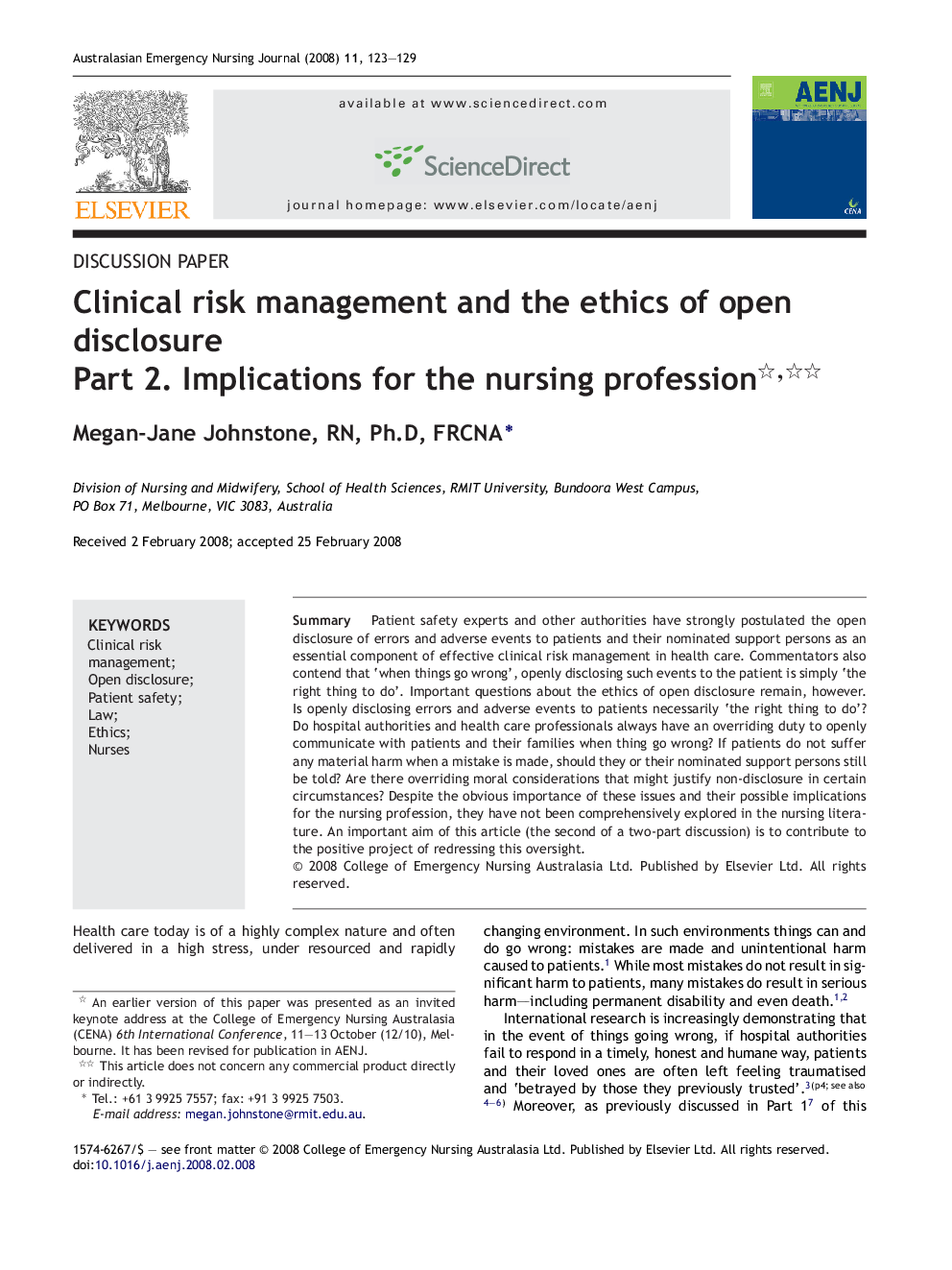| Article ID | Journal | Published Year | Pages | File Type |
|---|---|---|---|---|
| 2606396 | Australasian Emergency Nursing Journal | 2008 | 7 Pages |
SummaryPatient safety experts and other authorities have strongly postulated the open disclosure of errors and adverse events to patients and their nominated support persons as an essential component of effective clinical risk management in health care. Commentators also contend that ‘when things go wrong’, openly disclosing such events to the patient is simply ‘the right thing to do’. Important questions about the ethics of open disclosure remain, however. Is openly disclosing errors and adverse events to patients necessarily ‘the right thing to do’? Do hospital authorities and health care professionals always have an overriding duty to openly communicate with patients and their families when thing go wrong? If patients do not suffer any material harm when a mistake is made, should they or their nominated support persons still be told? Are there overriding moral considerations that might justify non-disclosure in certain circumstances? Despite the obvious importance of these issues and their possible implications for the nursing profession, they have not been comprehensively explored in the nursing literature. An important aim of this article (the second of a two-part discussion) is to contribute to the positive project of redressing this oversight.
